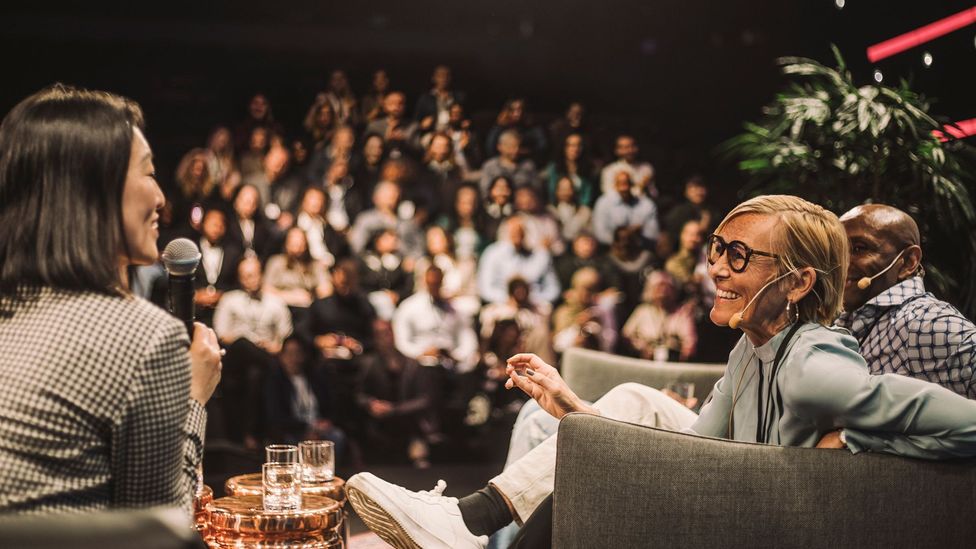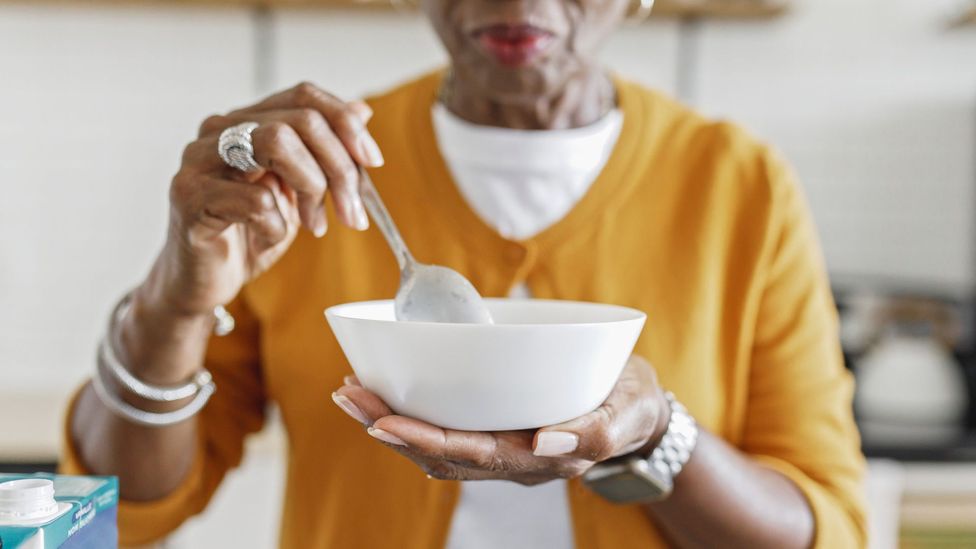Over the years I've presented dozens of radio shows and chaired hundreds of public events in front of live audiences. The Q&A at the end is an important part of the session and so I want everyone to feel comfortable enough to ask their burning question. But however much I try to make people feel relaxed, as the hands go up, there are always more men than women ready to ask a question and often those first hands all belong to men.
It's possible of course that women have fewer questions they want to ask, which is fair enough. But countless times, in the queue for the ladies loos afterwards, women from the audience have told me the question they had wanted to ask, but didn't. Invariably it's an excellent question.
Data is not the plural of anecdote, but years of these experiences have prompted me to look at the statistics. Most of the research on this topic has been done by observing audiences at academic conferences rather than events open to the general public, but it's still instructive. The evidence suggests that my experience is not some outlier. It's the norm.
For example, a study by Shoshana Jarvis from University of California, Berkeley, published in 2022, observed who asked questions at a conference that included everyone from biologists to astrophysicists and economists. This was one of those conferences where if you want to ask a question you have to leave your seat and stand in a queue in front of a microphone while everyone else watches you. Of the delegates, 63% were men, so you might expect 63% of the questions to come from men, but in fact men asked 78% of the questions.
The same happened when 250 academic departmental seminars in 10 countries were observed in a study led by Alecia Carter who's now at University College London. She found that women were two-and-a-half times less likely than men to ask a question despite the fact that the ratios of men to women present were, on average, equal.
It's true that in these studies the observers only looked at the actual questions asked, not who had their hands up in the hope of asking the question, so there is also the possibility that the moderators chose to the take the questions from men. But the repeated experience of men asking more questions has led some in academia to dub them "question-and-manswer" sessions.

If men are the first to ask a question at an event, it may mean women are less likely to ask subsequent ones (Credit: Getty Images)
So what's putting some women off?
It seems it's not for the lack of a question to ask. Alecia Carter analysed survey responses from 600 academics from 20 countries. It was interesting to see that both men and women said they sometimes didn't volunteer a question, even though they had one in mind. But women were more likely to say that the reason they held back was that they couldn't work up the nerve to ask it, were worried they had misunderstood the context, that the speaker was too eminent or intimidating, or that they felt they themselves weren't clever enough to ask a good question.
No one wants be the person who asks a question, only to be told in front of three hundred people, that they have missed the point. But this study would suggest this possibility is more likely to deter women.
Twice as many men as women said they were motivated to ask a question because they felt they had spotted a mistake
In the US, Jarvis found that women tended to say that they felt too anxious to ask a question, while men said that if they didn't ask a question they were holding back in order to give others space, suggesting that some men are taking active steps not to dominate the Q&A.
Twice as many men as women said they were motivated to ask a question because they felt they had spotted a mistake. This may sound mean, but these are academic events where speakers responding to criticism is all part of the process.
Research has also looked at the nature of the questions men and women ask. It's sometimes claimed that men are more likely to ask longer questions or attempt to ask more than one question at a time (I can't believe how often when I say we have time for one last quick question, the person I choose starts by saying they have three questions to ask).
But men are not the only offenders. When Gillian Sandstrom from the University of Sussex analysed more than 900 questions asked at 160 live conferences or public festivals, in a paper awaiting publication, she found no difference based on gender. When women did ask a question it was just as likely as a man's to be long or to have multiple parts.
When other characteristics of questions were compared, such as beginning by saying hello to the speaker, complimenting them, or introducing themselves, the only variation between men and women was that women were more likely to greet the speaker.

Research suggests moderators play an important part in making women more likely to want to ask questions (Credit: Getty Images)
So, the only real difference concerns who volunteers to ask a question in the first place.
You could argue that since there isn't time for everyone to ask a question anyway, then if some people don't volunteer, it doesn't really matter. The problem is that if half the audience is more reluctant to join in, then you might not be getting as diverse and interesting range of questions as you might otherwise. So far research has tended to focus on men and women, but it would be interesting to look at whether other under-represented or marginalised groups also hold back from the asking the questions they'd like answered.
In a work setting, asking questions can get you noticed and if you want to get the best jobs, then visibility matters. In a study conducted at a conference in France, researcher Junhanlu Zhang at the Insitut Pasteur found that people were more likely to remember the names of serial questioners. Of course, that doesn't mean their names were necessarily remembered positively. Maybe they were remembered for being the annoying one constantly asking questions!
The other problem with fewer women asking questions overall is that women at the start of their academic careers have fewer visible role models of other women showing them that you needn't be afraid to ask questions
